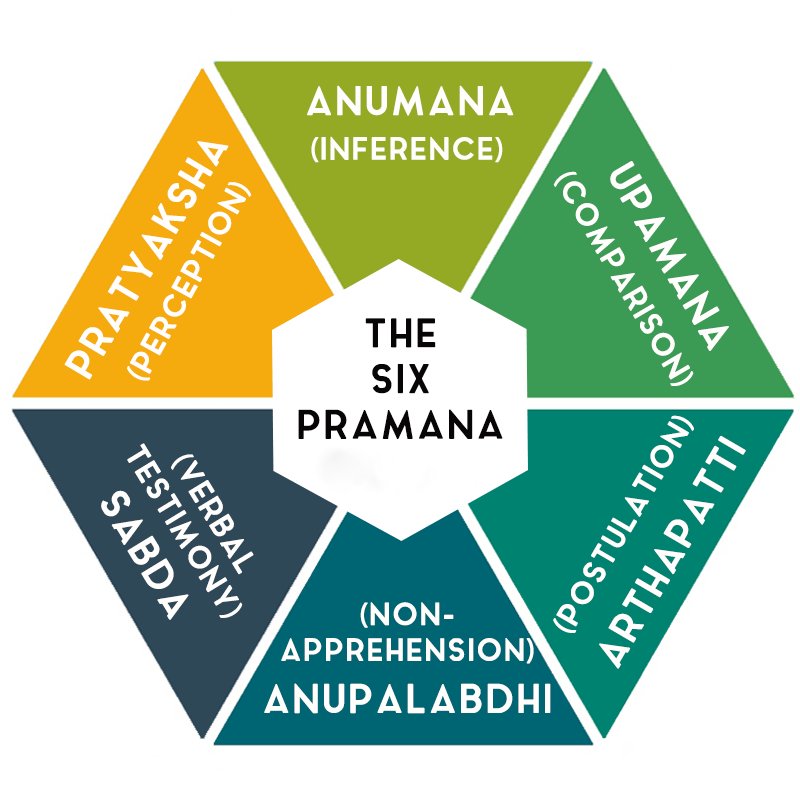Pramāṇa (Sanskrit: प्रमाण, Pramāṇas) literally means "proof" and "means of knowledge". It refers to epistemology in Indian philosophies, and is one of the key, much debated fields of study in Hinduism, Buddhism and Jainism, since ancient times. It is a theory of knowledge, and encompasses one or more reliable and valid means by which human beings gain accurate, true knowledge. The focus of Pramana is how correct knowledge can be acquired, how one knows, how one doesn't, and to what extent knowledge pertinent about someone or something can be acquired.
Ancient and medieval Indian texts identify six pramanas as correct means of accurate knowledge and to truths: perception (Sanskrit pratyakṣa), inference (anumāna), comparison and analogy(upamāna), postulation, derivation from circumstances (arthāpatti), non-perception, negative/cognitive proof (anupalabdhi) and word, testimony of past or present reliable experts (Śabda). Each of these are further categorized in terms of conditionality, completeness, confidence and possibility of error, by each school of Indian philosophies.
The various schools of Indian philosophies vary on how many of these six are epistemically reliable and valid means to knowledge. For example, Carvaka school of Hinduism holds that only one (perception) is a reliable source of knowledge, Buddhism holds two (perception, inference) are valid means, Jainism holds three (perception, inference and testimony), while Mimamsa and Advaita Vedanta schools of Hinduism hold all six are useful and can be reliable means to knowledge. The various schools of Indian philosophy have debated whether one of the six forms of pramana can be derived from other, and the relative uniqueness of each. For example, Buddhism considers Buddha and other "valid persons", "valid scriptures" and "valid minds" as indisputable, but that such testimony is a form of perception and inference pramanas.
The science and study of Pramanas is called Nyaya.
Pramāṇa literally means "proof". The word also refers to a concept and field of Indian philosophy. The concept is derived from the Sanskrit root, prama (प्रमा) which means "correct notion, true knowledge, basis, foundation, accurate notion". Thus, the concept Pramana implies that which is a "means of acquiring prama or certain, correct, true knowledge".
Pramāṇa forms one part of a tripuţi (trio) of concepts, which describe the ancient Indian view on how knowledge is gained. The other two concepts are knower and knowable, each discussed in how they influence the knowledge, by their own characteristic and the process of knowing. The two are called Pramātŗ (प्रमातृ, the subject, the knower) and Prameya (प्रमेय, the object, the knowable).
The term Pramana is commonly found in various schools of Hinduism. In Buddhist literature, Pramana is referred to as Pramāṇavāda. Pramana is also related to the Indian concept of Yukti (युक्ति) which means active application of epistemology or what one already knows, innovation, clever expedients or connections, methodological or reasoning trick, joining together, application of contrivance, means, method, novelty or device to more efficiently achieve a purpose.


